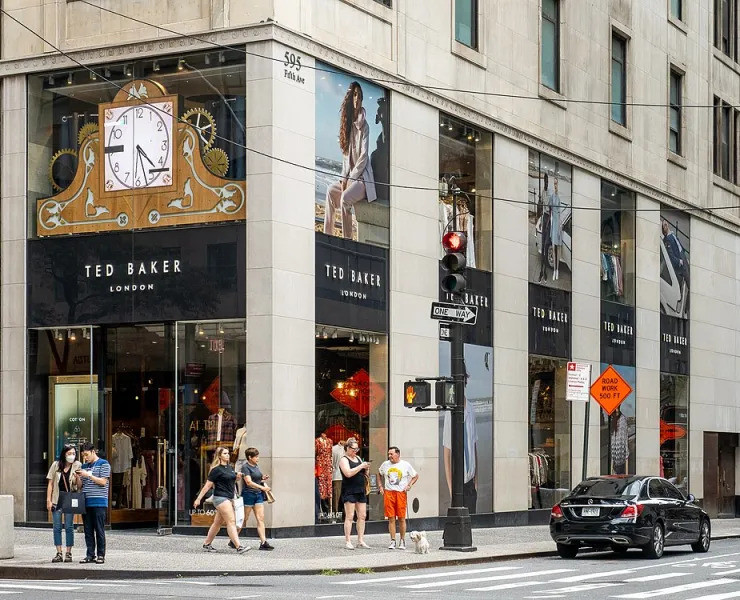PUBLISHED
August 20, 2024
Ted Baker, a staple of UK High Streets since the late 1980s, has become the latest victim in the ongoing struggle for brick-and-mortar stores.
Renowned for its distinctive advertising and iconic floral prints, the brand has long been a symbol of British fashion and heritage. However, in recent years, it has faced numerous challenges, including stiff competition, the rise of online shopping, and the exit of its founder, Ray Kelvin.
This week, Ted Baker is set to close its remaining stores in the UK, putting more than 500 jobs at risk. “This is an iconic brand with a signature design,” Diane Wehrle, retail expert and chief executive at Rendle Intelligence and Insights, told the BBC. Wehrle highlighted that Ted Baker has had to compete with other high-end High Street brands like Reiss, Whistles, Mango, and Massimo Dutti, which have steadily eroded its market share.
Despite its efforts, Ted Baker struggled to keep up with rising overhead costs, managing some 1,000 employees across 46 stores, concessions, and its online business. Wehrle pointed to a significant mistake: the brand’s inability to adapt to changing consumer preferences. “Over the last three decades, their signature floral design, while iconic, simply became too tired for today’s consumers,” she noted.
Wehrle also pointed out that the brand’s “instability and poor media profile” worsened following misconduct allegations against its founder, further affecting sales. Ray Kelvin, the founder, stepped down as CEO in March 2019 after allegations of inappropriate behavior, which he denied. His departure was followed by the resignation of his successor Lindsay Page and chairman David Bernstein later that year after the company issued a profit warning.
Ted Baker began as a menswear brand in Glasgow in 1988 and eventually expanded across the UK and the United States, with licensing agreements in Asia and the Middle East. Danni Hewson, head of financial analysis at AJ Bell, told the BBC that Ted Baker enjoyed enormous success in the 1990s and 2000s by offering products for special occasions. “Teenage boys bought their first suits for prom, twenty-something women picked up signature florals for weddings, and Christmas stockings were filled with branded fragrances and lotions,” Hewson recalled. However, as its footprint expanded, the brand’s charm began to wane, especially as consumers turned to athleisure during lockdowns instead of dressing up in formal wear.
“Retail is brutal, and fashion retail especially so,” Hewson added. “What’s trendy one season might be out the next, and social media has made staying on-trend even more critical.” Many other brands have faced similar struggles. Although names like Karen Millen and Coast still exist as part of larger online groups, they no longer have the brand recognition they once did.
Susannah Streeter, head of money and markets at Hargreaves Lansdown, pointed out that larger companies like Next and M&S were able to pivot towards digital channels and more relaxed fashion ranges, while Ted Baker faltered as it struggled to shift focus. Streeter noted that when Authentic Brands Group acquired Ted Baker in 2022, there were high expectations for a revival, but the necessary investment to rejuvenate the brand never came to fruition.
The cost-of-living crisis has further squeezed consumers’ budgets, dealing another blow to brands positioned in the middle of the market. The company that operated Ted Baker’s UK stores, No Ordinary Designer Label (NODL), went into administration in March this year. While Authentic Brands Group owns Ted Baker’s intellectual property, NODL was the holding company for the brand in the UK.
When NODL collapsed, Authentic stated that the “damage done” during a partnership with another firm was “too much to overcome.” Authentic has since been in talks with other retailers about a potential licensing partnership for the brand, but reports suggest these discussions have stalled, leaving Ted Baker’s future uncertain







